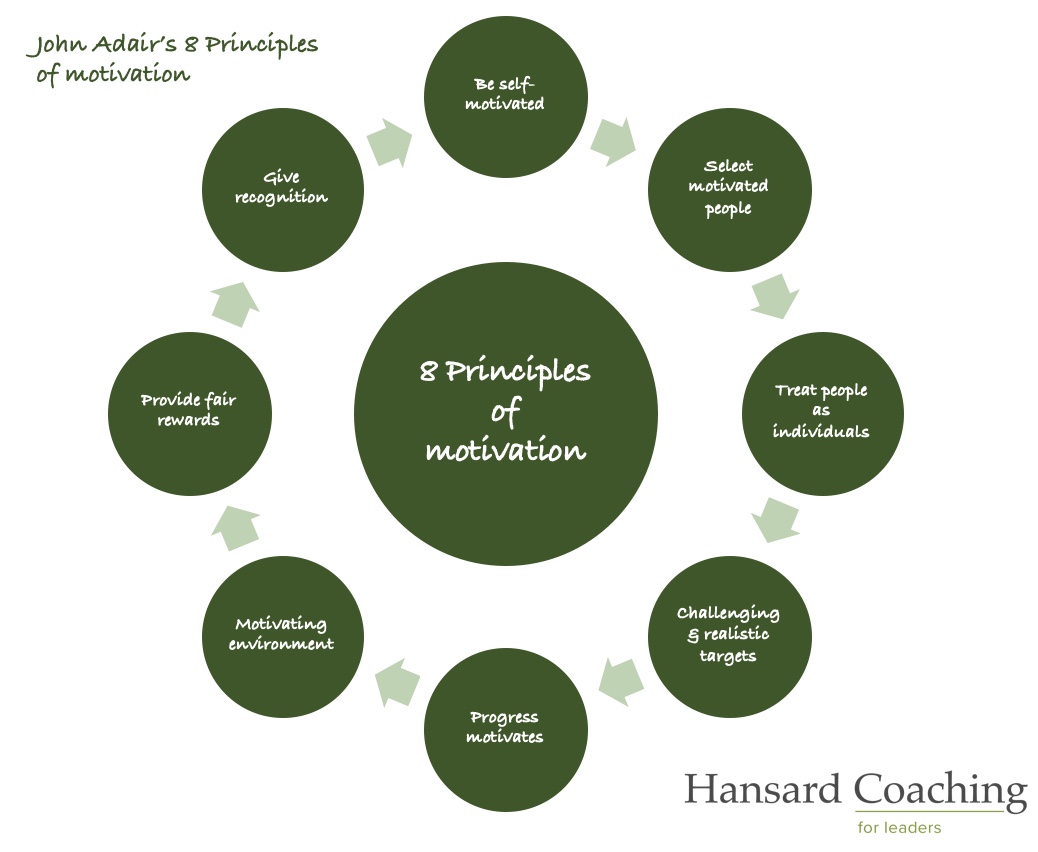
Motivating a team is one of the most important and complex tasks for leaders. When motivation is high, teams are more productive, creative, and resilient. Yet, keeping a team consistently inspired requires a thoughtful and intentional approach. John Adair, a pioneer in leadership theory, offers a practical framework with his “Eight Principles” to help leaders foster motivation and sustain it over time.
Firstly, start with yourself: self-motivation is where effective leadership begins. As a leader, your energy, passion, and commitment set the tone for the entire team. If you are motivated, your team will naturally pick up on that energy. Regularly reconnect with your goals and sense of purpose to ensure you’re showing up as the driving force your team needs. A leader’s enthusiasm is contagious and can inspire others to find their own motivation.
Next, hire motivated people: building a motivated team requires great recruitment. It’s not just about technical skills; it’s about finding individuals who fit into your team and who are naturally driven. Look for candidates who demonstrate passion, and a desire to grow. A team composed of self-motivated individuals will require less external push and can maintain momentum, even during challenging times.
Always treat your team as individuals: understanding the unique motivators of each team member is critical. One-size-fits-all approaches rarely work. Some team members may be driven by recognition, others by personal growth, and some by the ability to maintain work-life balance. As a leader, it’s your job to understand these individual drivers and tailor your approach to meet their needs.

Be sure to set challenging but realistic goals: people perform best when they are pushed beyond their comfort zone — but not so far that the challenge feels insurmountable. Set goals that stretch your team’s abilities, but remain achievable. These targets should inspire ambition without causing burnout. Achieving meaningful milestones keeps people engaged and motivated.
Remember to celebrate progress: motivation thrives on a sense of progress. Regularly acknowledging both small and large wins keeps your team focused and energized. Whether it’s completing a major project or hitting a key performance milestone, celebrating progress reinforces the idea that their hard work is paying off and encourages continued effort.
Constantly work at creating a motivating environment: foster a culture of trust, collaboration, and openness. Leaders should work to remove obstacles that hinder performance, whether it’s outdated processes, lack of communication, or restrictive policies. By creating an environment where people feel supported and valued, you make it easier for them to stay motivated.
Provide fair reward: fair and transparent rewards are crucial for maintaining motivation. Financial incentives, promotions, and other benefits should align with individual and team achievements. When people feel that their contributions are recognised and rewarded appropriately, they are more likely to stay engaged and loyal to the organisation.
Finally, recognise, recognise, recognise: recognition can be more powerful than any reward. A simple, heartfelt acknowledgement of someone’s effort can boost morale significantly. Public praise, personal notes, or even informal recognition during meetings can go a long way in making people feel appreciated.